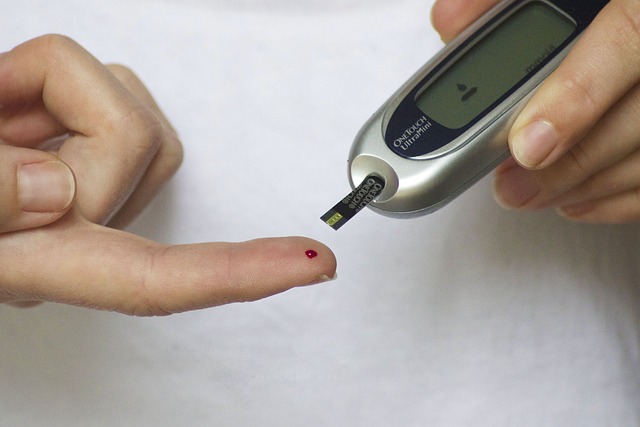Both cholesterol and iron, essential substances for bodily functions, should be monitored together. While an Iron Blood Test UK isn't directly linked to cholesterol levels, low iron levels can indirectly impact cardiovascular health. Cholesterol tests in the UK often include an iron blood test as a crucial component of heart health management, considering balanced iron levels are vital for efficient oxygen transport and metabolic processes. Accurate interpretation of cholesterol results requires understanding this relationship, as abnormal iron levels can affect cholesterol metabolism. Optimal cholesterol levels (total below 5mmol/L, LDL under 3mmol/L, HDL exceeding 1mmol/L) should be determined alongside medical history and risk factors to guide lifestyle adjustments or medication for healthy cholesterol management.
“Discover how simple blood tests can reveal your cholesterol levels and guide healthier choices. This article demystifies cholesterol, focusing on its crucial role in your body and how it’s measured through iron blood tests in the UK. You’ll learn what different cholesterol numbers mean, from HDL to LDL, and gain insights into managing your health effectively. Understanding these results is key to making informed decisions for a healthier future.”
- Understanding Cholesterol: What You Need to Know
- The Role of Iron in Blood Cholesterol Tests
- How to Interpret Your Cholesterol Levels After a Blood Test UK
Understanding Cholesterol: What You Need to Know
Cholesterol is a waxy substance found in all cells in our bodies, playing a crucial role in maintaining good health. However, it’s important to understand that having too much cholesterol, particularly low-density lipoprotein (LDL) cholesterol, can increase the risk of heart disease and stroke. This is where an iron blood test UK comes into play.
An iron blood test isn’t directly related to cholesterol levels, but it’s essential in managing overall health. Iron is a vital component of haemoglobin, which carries oxygen throughout our bodies. When you get a cholesterol check, it’s also beneficial to have your iron levels tested to ensure they’re within the healthy range. This is because low iron levels can impact various bodily functions, including energy production and immune system health, which indirectly affects overall cardiovascular health.
The Role of Iron in Blood Cholesterol Tests
Cholesterol tests are a vital tool in managing your cardiovascular health, and one common method involves an iron blood test UK. While cholesterol is often the primary focus, iron plays a significant role in these assessments. Iron is an essential mineral that contributes to the overall health of red blood cells, which carry cholesterol throughout the body. A well-functioning circulatory system relies on balanced iron levels to ensure efficient oxygen transport and metabolic processes.
In the context of cholesterol testing, iron is measured alongside cholesterol levels to detect potential abnormalities. Iron deficiency or excess can impact cholesterol metabolism, affecting its distribution in the blood. Understanding this relationship is crucial for interpreting test results accurately. For instance, elevated iron levels might suggest an underlying condition that requires further investigation, while low iron values could indicate a need for dietary adjustments or supplementation to maintain overall health and optimal cholesterol regulation.
How to Interpret Your Cholesterol Levels After a Blood Test UK
After your blood test, it’s important to understand what the results mean. In the UK, healthcare professionals typically measure total cholesterol, LDL (low-density lipoprotein) or ‘bad’ cholesterol, HDL (high-density lipoprotein) or ‘good’ cholesterol, and triglycerides. An Iron Blood Test UK can provide valuable insights into your heart health.
Total cholesterol levels below 5mmol/L are generally considered optimal. LDL cholesterol should be under 3mmol/L, while HDL cholesterol above 1mmol/L is protective against cardiovascular disease. Triglyceride levels below 2.0mmol/L are desirable. Your doctor will consider these numbers in context with your medical history and other risk factors to determine if lifestyle changes or medication are necessary to maintain healthy cholesterol levels.
Regularly monitoring cholesterol levels through simple blood tests, such as the Iron Blood Test UK, is an essential step towards maintaining good cardiovascular health. By understanding your cholesterol numbers and taking appropriate action, you can significantly reduce the risk of heart disease and other related conditions. Remember, early detection and awareness are key to a healthier future.
